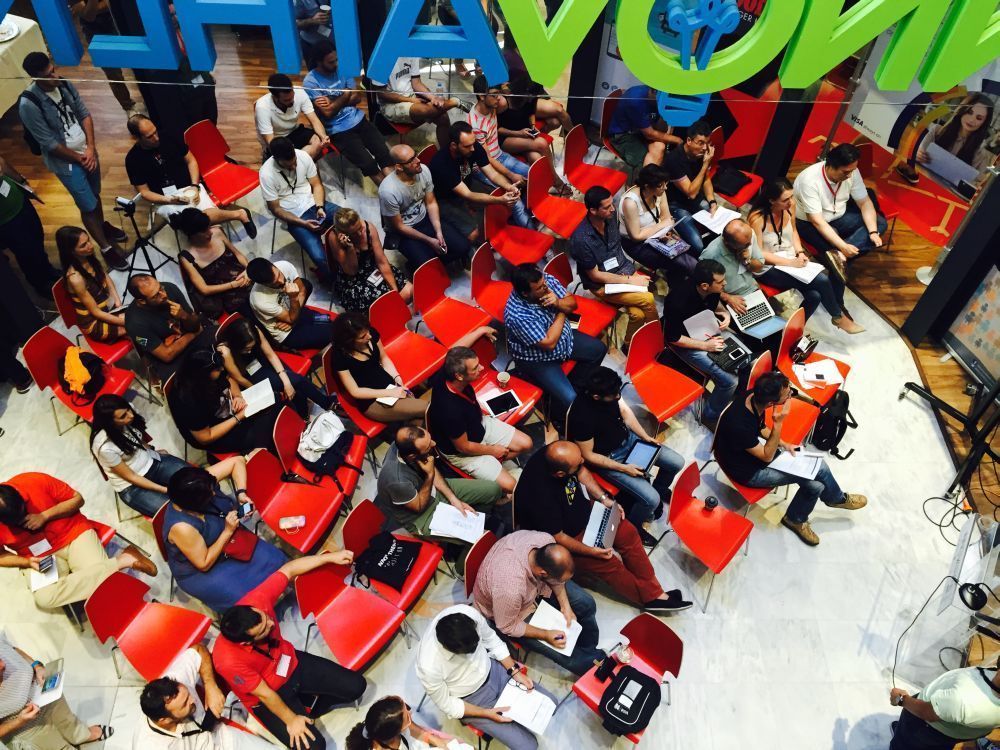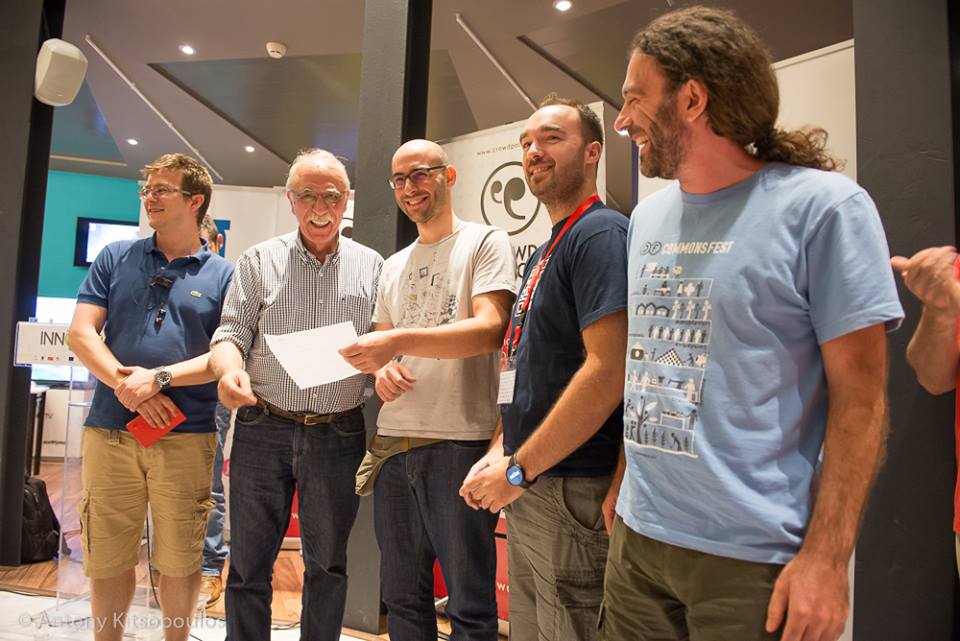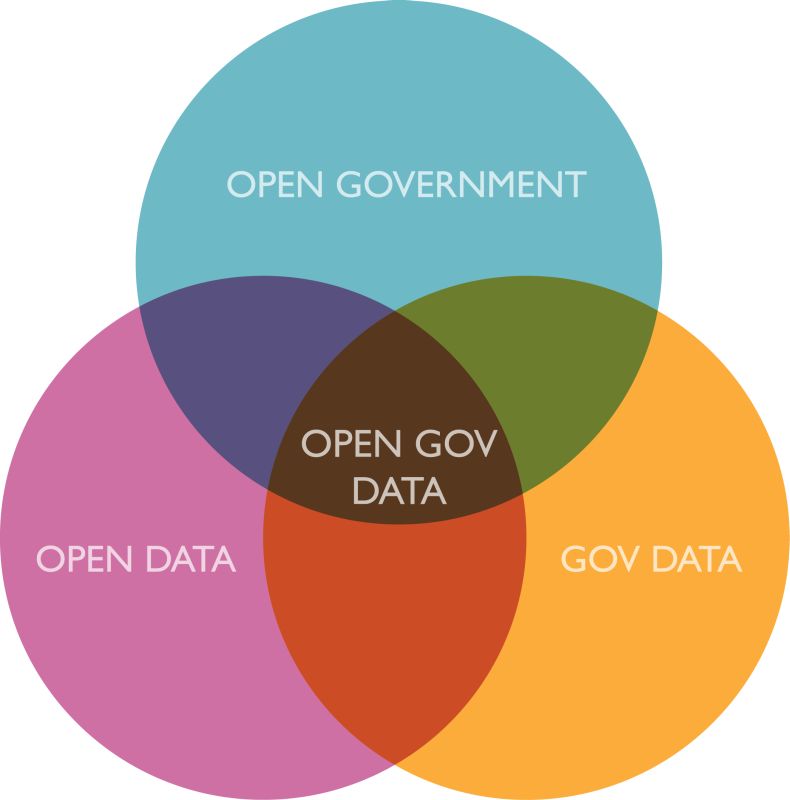Innovative ‘Open Data’ #transport Applications Take Center Stage in Athens Hackathon Event
Twenty-five groups consisting of 130 developers took part in the Greek capital’s first Hackathon #transportevent, held July 18-19 at the Athens Technopolis, and focused on the design and development of applications through open data that promote entrepreneurship and improve services for the public.
The developers who took part in the event were young entrepreneurs, programmers, analysts, engineers, designers, business consultants, professionals and students.
During the two-day event and in less than 30 hours, the developers createdapplications through open data that focused on transport and the improvement of services with participatory processes. Twenty mentors were present at the event to offer support and advise to all groups during their efforts.
The Greek law on open data (4305/2014) has been in force for over a year and the Hackathon aimed to encourage the private and public sector to make their open data available for use and innovation.
The Athens Urban Transport Organisation (OASA) provided open data to assist developers in their efforts to create applications for transport.
Also present at the Hackathon were 25 companies and 40 government officials who supported the event either through sponsorship or by “opening” their data on culture, tourism, environment and public administration to be used for innovative open source programs. Greek Travel Pages (GTP) was among the supporters of the event as well as the first private company that provided open data to the Hackathon.
The two-day festival wrapped up with the selection of the six groups that came up with the most innovative applications for transport. The groups were awarded with prizes, that included gifts of cash, counseling services from the Innovation and Entrepreneurship Center of the Athens University of Economics, prepaid VISA cards and tablets.
The groups with the best applications are the following: Ex Machina, 10Coders, definiens, ConTRANSS, kawai-developers and Transit Rush.
All applications are available for use by the private and public sectors and can be found at the following link https://github.com/crowdhackathon-transport.
#transport was the first Hackathon of the “Crowdhackathon Innovating with Opendata” series, which focused on the use of open data in the private and public sectors. Each Crowdhackathon will specialize in a particular area of the economy and society. More information can be found athttp://crowdhackathon.com/.
The Hachathon #transport event was organized by the Athens Urban Transport Organisation (OASA), Crowdpolicy Innovative Company and InnovAthens, the Athens’ Municipality Innovation and Entrepreneurship Hub and held under the auspices of the Transport and Networks Division of the Greek Ministry of Economy, Infrastructure, Shipping & Tourism.
Source: gtp headlines
Looking for Inspiration? Five Noteworthy Innovations in Public Participation
Challenges to Democracy. From http://www.challengestodemocracy.us
This column profiles five recent entries in Participedia, an open global knowledge community for researchers and practitioners in the field of democratic innovation and public engagement. For more ideas, read our review of Participedia’s top innovations of 2013. Even better, visit Participedia to join the conversation and explore over 400 experiments in new forms of participatory politics and governance.
By Tomás Insua and Michael MacKenzie
Participedia is an effort that hopes to become a key resource for scholars, activists, policy makers and citizens who are interested in new democratic practices and institutions. And it is always worth looking back to some of the most interesting cases recently added to Participedia for some inspiration. This selection from the frontlines of participatory innovation reflects both the diverse nature and the global span of Participedia.
1) Argentina – DEMOS
The purpose of the DEMOS project was to enable civic participation in the debate about high-profile law proposals in the Buenos Aires Legislature in Argentina, using the DemocracyOS software of the Democracia en Red foundation. The web app used was demos.legislatura.gov.ar and the initiative was open to civic participation for 35 days in November and December 2014.
In the project’s first phase, citizens were invited to rank their interests about 16 bills that had been introduced in the legislature, corresponding to 12 political parties. The goal was for citizens to chose which were the 3 most important bills that should be debated online. And in the second phase, the top 3 bills were submitted for online discussion, both at an overall level and broken down into the sections of each bill. Over 13,000 citizens visited the app and almost half of them signed up to participate. The online debate phase produced several interesting outcomes: there was one bill (about nurses’ working conditions) which received overwhelming support mostly because of the mobilization of activists from the party sponsoring that bill, and there was another very controversial bill (about informal parking guards) that led to high levels of polarization and disagreement among participants.
The DEMOS pilot was an unprecedented participatory initiative in Argentina’s history using online tools, and was relatively successful in terms of citizen turnout. The project was very innovative in enabling civic engagement in real-world bills that are important to the day-to-day life of citizens. One of the most interesting characteristics of DEMOS was that it was a success story of partnership with a government institution and with politicians from the whole political spectrum.
Read more about DEMOS in Participedia.
2) Australia – Tasmanian Deliberative Democracy on Biobanks
Biobanks, which store and catalog human tissue specimens (such as purified DNA, saliva, blood, and plasma) using genetic markers and other traits such as age, gender, blood type, and ethnicity, have come to play an increasingly important role in biomedical research. As biobanks have become more common, critical bioethical questions of privacy, ownership, and commercialization have also surfaced. A number of deliberative events have been conducted to address these questions, with the goal of enhancing communication between the research community, regulators, stakeholders, and the public.
One such process was recently conducted in Tasmania. This event brought 25 participants together to deliberate. It led by faculty at the University of British Columbia and the Menzies Research Institute Tasmania. While the selection process was random, quotas were used to ensure that relevant demographic groups were adequately represented in the process. Participants learned about the issues in various ways. They were provided with an information booklet, they had access to a private portal on the project’s website, and during the first days of the process, they listened to presentations by experts and asked questions.
Deliberation over a period of two weekends in April 2013, with a 12-day break of dialogue and information in between, led to 17 conclusions on eight topics. The participants showed strong support for the continued existence of biobanks in general, and a Tasmanian biobank in particular. Throughout the deliberations, participants became part of the policy-making process as opposed to mere observers of decisions made elsewhere, and this helped create a strong sense of personal involvement and commitment to the process among participants. The use of random processes to select participants helped ensure that the process included those who might not be involved in more traditional consultation processes, and this, in turn, helped ensure that a diverse range of viewpoints and opinions were expressed.
Read more about Tasmanian Biobanks Deliberative Democracy in Participedia.
3) United States – Boston’s Youth Participatory Budgeting
In 2014 the City of Boston launched “Youth Lead the Change,” the first participatory budgeting process in the US focused exclusively on youth. Its goals included civic education and engagement, and the inclusion of youth voices that are typically excluded from politics in the City’s capital planning process. Participants were primarily from Boston public high schools, and participation rates were high among young people of color from low-income neighborhoods.
The process, which was implemented by the Participatory Budgeting Project organization, had several key stages. First, a Steering Committee made up of youth organizations was established, and this Committee created a rulebook to guide the process. Second, youth assemblies were held in neighborhoods throughout Boston to generate ideas and identify priorities. This stage of the process generated 473 ideas and funding proposals, which were then divided into six categories by organizers. Third, a core group of young people was engaged as Change Agents to turn the ideas identified in the youth assemblies into specific investment proposals. They engaged in a dialogue with City officials who helped determined whether or not the ideas were eligible and feasible. The City also provided cost estimates for individual proposals.
The Change Agents made collective decisions deliberatively using a decision matrix that considered various factors including feasibility, impact, and need. Ultimately, 14 proposals were identified as priorities. At the end of the process, the Change Agents held a vote to determine which 7 priorities would be funded through the 1 million dollar youth budget.
Read more about Boston’s Youth Participatory Budgeting in Participedia.
4) Greece – Vouliwatch
Vouliwatch was launched on March 16, 2014 and went viral on the same day on Greek social media. As of January 2015, the project had 44.470 unique visitors. So far, 1048 participants have submitted 409 questions to their representatives and the site has generated 25 crowdsourced policy ideas. Importantly, representatives have also embraced the project. They have, thus far, provided 50 official answers to questions raised by citizens.
The web application has five main functions: 1) it provides individuals with an opportunity to ask their representatives questions; 2) it functions as a source of crowdsourcing; 3) it helps citizens monitor the voting behaviors of representatives; 4) it provides users with a direct newsfeed of Parliamentary events; and 5) it provides an online debate forum that is, in effect, a “live” political chat lab. Two additional features were introduced for the 2015 general election: 1) a “Policy “Monitor” function that allows voters to compare and evaluate party platforms; and 2) a “Candidate Watch” function which makes it possible for citizens to interact directly with candidates.
Despite widespread public skepticism of political institutions in Greece, the reticence of Greek politicians to engage their publics, and the divide between those with easy access to the internet and those without, Vouliwatch has managed to establish itself as a credible, non-partisan and independent source of information that extends beyond the limits of traditional online organizing efforts. In addition to partnering with numerous civil society organizations to promote open government (both locally and abroad), Vouliwatch has also sought close cooperation the Greek Parliament’s administrative system and the Ministry of Reform and e-Government in particular. Organizers and proponents of the site have been asked to join the Forum of the Open Government Partnership, which will assess opportunities for institutional reform in Greece.
Read more about VouliWatch in Participedia.
5) Tunisia – Civic Participation in the Constitution Drafting
Tunisia’s democratic transition was one of the more successful revolutions associated with the 2011 Arab Spring. Tunisia has a new constitution that was developed through an extensive, representative, and participatory process. The participatory components of the process were supported, in part, by the expertise of the United Nations Development Program (UNDP).
As part of this effort, the UNDP sponsored and organized a dialogue between elected officials, individual citizens, and civil society organizations in Tunisia’s 24 governorates. In total, 80 members of the National Constituent Assembly were involved in the process. They were trained in the art of drafting legislative and constitutional clauses, and they were introduced to different public consultations techniques and procedures. In turn, more than 5,000 individuals and 300 civil society organizations participated in the dialogue. The fact that public officials were meaningfully engaged (and committed) to the process helped ensure that the contributions of citizens and their organizations were taken into account during the drafting of the new constitution.
The UNDP process also aimed to include two groups who are typically underrepresented in Tunisian politics: 1) young people; and 2) women. The Ministry of Higher Education worked with universities to encourage students to participate in the process, and a total of 320 students made contributions to the dialogue. The process might have been made even more representative if young people outside the university system were encouraged to participate as well. The representation of women was encouraged by a parallel UNDP program, which trained 4,200 women and sensitized them on democratic processes, with a focus on the constitutional process. This effort to include women is notable given the region’s track-record on women’s rights.
Read more about Tunisia’s Constitution Drafting in Participedia.
We look forward to another year of great new ideas and insights from these and other innovations in public participation in 2015. If you have an idea you would like to share, contact us or add it to the comments below!
Also note that the Ash Center will soon announce the finalists for its special Innovations in American Government Award recognizing government-led innovations that best demonstrate enhanced public engagement and participation. A key feature of the Ash Center’s Challenges to Democracy public dialogue series, the winner of the Roy and Lila Ash Innovations Award for Public Engagement in Government will receive a $100,000 grant to support replication and dissemination activities.
Tomás Insua is a Master in Public Administration candidate at Harvard Kennedy School and a research assistant at the Ash Center for Democratic Governance and Innovation.
Michael MacKenzie holds a PhD in Political Science from the University of British Columbia. Currently, he is a Democracy Fellow at the Ash Center.
White Paper: Crowdsourcing for Ebola
CROWDPOLICY WHITE PAPER
Crowdsourcing for Ebola
It is widely acknowledged, that the fight against the deadly Ebola virus disease, is taking place on many different fronts as regards to resources limitations, lack of relevant information (e.g. geographic data), the need to efficiently provide training of volunteers and protection for medical personnel treating Ebola patients. It is also true that several initiatives have been started with the involvement of aid workers from agencies such as the American Red Cross and Médecins Sans Frontières/Doctors Without Borders (MSF) and volunteers from the Humanitarian OpenStreetMap Team (HOT) who are attempting to map the affected region, especially the worst-hit countries—Guinea, Sierra Leone and Liberia. Online volunteers from more than 80 countries around the world are participating in this battle against the Ebola virus disease, which has killed over 2,400 people in West Africa. Furthermore, many public and private organizations have already developed initiatives to support the fight against Ebola using data to tailor requests to international aid organizations for help in fighting the spread of Ebola.
In that prism, the European Commission has taken several initiatives and it is closely working with the EU Member States within the Health Security Committee (HSC) to keep them informed about the latest developments and to coordinate approaches on prevention and preparation for Ebola, in accordance with Decision 1082/2013/EU on serious cross border health threats. Similarly, the United States Agency for International Development (USAID) has turned to ask the world for help. For instance, in partnership with the White House Office of Science and Technology, the Centers for Disease Control and Prevention and Department of Defense, USAID launched a crowdsourcing campaign titled Fighting Ebola: A Grand Challenge for Development. Prizes in the range of $100,000 to $1M will be awarded for innovative designs of Personal Protective Equipment (PPE) to protect and empower healthcare workers dealing with Ebola patients. In that prism, US government offers $1million crowdsourcing prize for best Ebola hazmat suit design asking for help to invent new hazmat suits for doctors and soldiers fighting the Ebola epidemic in Africa and at home.
Crowdsourcing constitutes a powerful technique to solve in a rapid and effective way many of the urgent technical problems related to the Ebola pressing problems. The World Health Organization (WHO) for instance, has warned recently “the death rate in the Ebola outbreak has risen to 70 percent and there could be up to 10,000 new cases a week in two months”. The urgency and the criticalness of the problem necessitate rapid collection of information to support accurate solutions, as the data from the World Health Organization demonstrate the increasingly rapid rates of infection, particularly in Sierra Leone.
Crowdsourcing can support the efforts to tackle those problems in various levels, such as:
- Open and re-usable platform as an online tool that will allow users to provide information and trace map elements from various sources related to the Ebola virus disease, using open source disease management platform;
- Software development assisting community-based organizations with support and services around the management of mutual aid and assistance to populations affected by the Ebola virus disease;
- Knowledge repository with information including imagery of the area, digital maps, topographic maps, pinpointing sources, population centers and distribution;
- Development of digital applications to rapidly and efficiently provide valid and useful relevant information and assist the health workers and other international aid organizations;
- Development of people locator systems with the official registries maintained by government agencies, in collaboration with local government and volunteer organizations that are taking part in the response and recovery efforts;
- Crowdsource “ideas wall” to remotely develop new applications and initiatives to assist the collection and diffusion of relevant knowledge and information;
- Crowdsource multilateral communication systems amongst scientific organizations, health centers, health service providers volunteers and medical personnel on first level information (e.g. medical protocols) with an emphasis on communities contribution;
- Mapping toolkit to build and support community resilience for the Ebola virus disease preparedness in collaboration to “open knowledge communities”.
The efforts to combat the deadly virus will be further supported by initiatives exploiting the wisdom of crowds. Knowledge (codified and tacit) constitutes an effective mechanism to productively contribute to the solution related to the tackling of the Ebola epidemic and crowdsourcing initiatives can support the implementation of relevant ideas and applications.
Antonios Angelakis, PhD
Open Innovation Expert
Email: [email protected]
Crowdsourcing White Paper (pdf)















